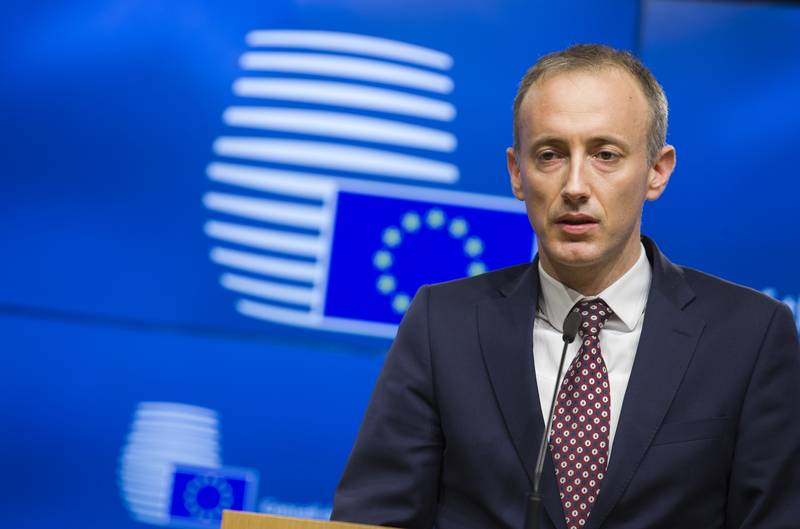Regarding the most important brick in the wall
Adelina Marini, May 31, 2009
Boosting the model of school financing, further development of the system for outside estimation (matriculations), smoothing away the differences in the quality of teaching, respectively - of succeeding of children, better social status for those who have finished professional education, efforts for life long learning, increase of the project financing in science, decentralisation and transparency in scientific research. Those are the things which the minister of education and deputy prime minister Daniel Valchev considers as next steps in the sphere of education. In an article for the "Capital" weekly newspaper as part of the Initiative 2020, which main idea is to draw the directions of further development of Bulgaria for the next 10 years, Daniel Valchev makes something like an analysis and a report of what's been done so far on the education.
We have to be honest and pay the due respect for minister Valchev who, in spite of the resistance of the conservative (I'd say ossified) system as well as of parents and pupils, has started the reform on the school education which had to start some 15 years ago. But my thoughts are not about what's being done but about what could and should have being done, without of course to underestimate the achievements of Mr. Valchev. But his directions, in the "Capital" article, are much more general and it is not quite clear how they can be implemented and when.
My ideas are much more purposive and exist in real life. I'm almost certain that I will be accused of nostalgia but the facts are facts and I call on everybody to regard them just as facts and not as practices from the past. Here's what it is all about.
1. Centralisation of the process of publishing the school books so that the vicious and even mafia-like practice at the moment is very harmful. At present, for years, private publishers produce books which the Ministry of education approves but quite often school teachers and principals confess that they are being pushed to choose one publisher instead of another. Thus the quality of books will rise and such stupid things like: the electricity has the characteristic to heat and shine would be avoided. Here we should also add the responsibility for organising a very serious debate about the content of the books and is it really a good idea for us to ask our children guess a quote from which novel is.
2. Beside further development of the system for outside estimation for which you could read more in the links below, it is also necessary the inspections in class to be restored. Thus there would be an outside and independent control of teaching in class so that it would be better defined where the problems lie - in the lack of discipline or something else and in the same time it would motivate the teachers to put more efforts, in spite of the law wages and the children who will not be able to rely always when examined on the sympathies of the teacher.
3. The meetings with parents should be more frequent and replace the poor practices parents to be summoned in school for minor reasons, like to complain that their children talk in class. After all they talk in class not at home, right? So it would be nice if everyone would take his responsibility and try and do his job properly. In this regard the new draft legislation for the school education is a step in the right direction, but probably it is true that the rush around its approval was unnecessary. But since the 40th Parliament hasn't manage to put it in its agenda before the end of the term, gives us the opportunity to continue a very serious and profound debate regarding the pluses and minuses of the legislation and to see is it really complied with today's realities.
4. New methods of teaching on civic issues should be introduced like: responsible behaviour on the road, notwithstanding if you are a driver or just a pedestrian. A lot of games can be developed that can be amusing and in the same time would impress children more than the vulgar behaviour of their parents. Likewise, games can be developed about the butterfly effect - or how the lack of interest in civic matters leads to appropriation of power by a circle of people and to actual loss of democracy. So there can be games simulating voting, defending civil causes etc. Similarly, schemes, giving just basic economic education would also be very useful so that children get basic economic literacy.
I'm sure that there are much more things that can be written or said and that is why I respect minister Valchev very much because he hasn't stopped defending the thesis that education is the most important exactly because its long-term effect. And it would be nice if we were all aware that it's not only a job that the minister should do by himself but it depends on all of us as a society because the next minister might be different and it's us that should put our requirements for our future.
 Krasimir Valchev | © Council of the EU
Krasimir Valchev | © Council of the EU | © euinside
| © euinside | © EU
| © EU